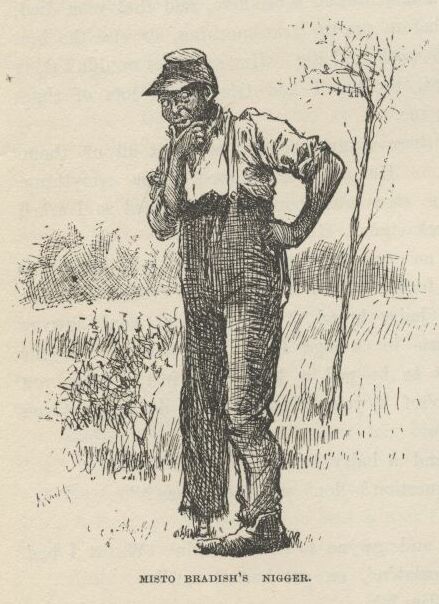"Yes; en I's rich now, come to look at it. I owns mysef, en I's wuth eight hund'd dollars. I wisht I had de money, I wouldn' want no mo'."
This quotation reflects a development in Jim's relationship with himself and his self worth. There are two distinct aspects of Jim's statement, the first being that he acknowledges his independence and the second being that has been labeled with a monetary value. "I owns myself" is a powerful statement that illustrates the autonomy he has won by breaking from the bondage of slavery. The statement is clouded, however, by his knowledge of the pricetag that was placed on him. The 800 dollars complicates the reading as the sum is juxtaposed against the priceless nature of freedom. Reading it from my 21st century vantage point it is difficult to comprehend how one can simultaneously appreciate one's self-worth while juggling that with societies warped economic evaluations.

"I felt good and all washed clean of sin for the first time I had ever felt so in my life, and I knowed I could pray now. But I didn't do it straight off, but laid the paper down and set there thinking—thinking how good it was all this happened so, and how near I come to being lost and going to hell. And went on thinking. And got to thinking over our trip down the river; and I see Jim before me all the time: in the day and in the night-time, sometimes moonlight, sometimes storms, and we a-floating along, talking and singing and laughing. But somehow I couldn't seem to strike no places to harden me against him, but only the other kind. I'd see him standing my watch on top of his'n, 'stead of calling me, so I could go on sleeping; and see him how glad he was when I come back out of the fog; and when I come to him again in the swamp, up there where the feud was; and such-like times; and would always call me honey, and pet me and do everything he could think of for me, and how good he always was; and at last I struck the time I saved him by telling the men we had small-pox aboard, and he was so grateful, and said I was the best friend old Jim ever had in the world, and the only one he's got now; and then I happened to look around and see that paper.
It was a close place. I took it up, and held it in my hand. I was a-trembling, because I'd got to decide, forever, betwixt two things, and I knowed it. I studied a minute, sort of holding my breath, and then says to myself:
"All right, then, I'll go to hell"—and tore it up."
This is a critical shift in the novel where Huck finally determines the course of his moral compass, rejecting oppositional contemporaneous ideologies.
You've got an interesting disagreement with Jarrett here...
ReplyDelete